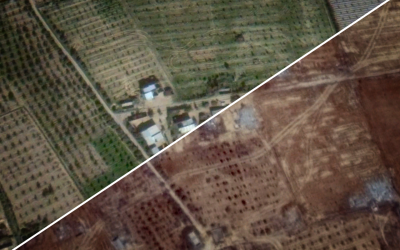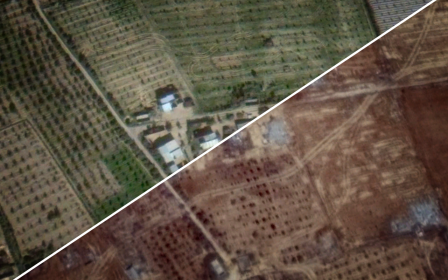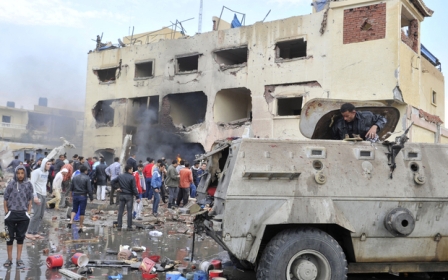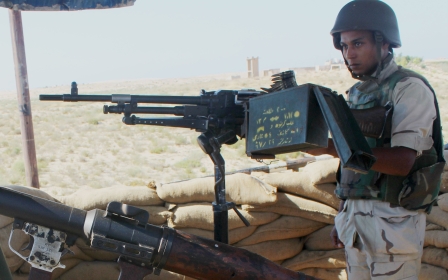Egypt's Sinai: Security services are responsible for war crimes, says HRW report
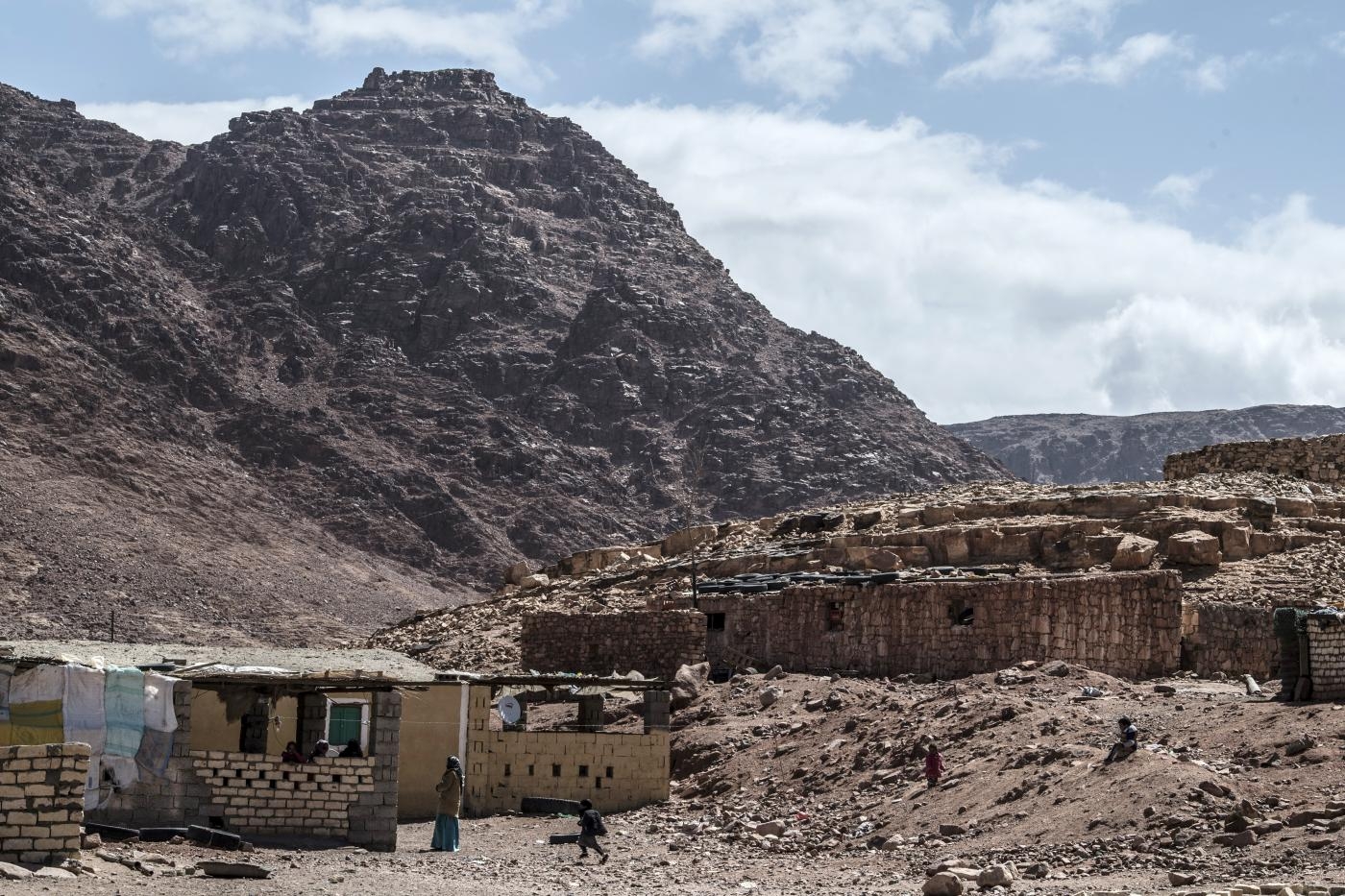
Egyptian security forces have committed war crimes against civilians in the Sinai Peninsula, including mass detentions, enforced disappearances and extrajudicial killings, a new report by Human Rights Watch (HRW) has said.
Following a two-year investigation, the report, released on Tuesday, documents "unlawful" air and ground attacks against civilians in the area.
The Egyptian military has been struggling to defeat Sinai-based Islamic State (IS) fighters who have been waging attacks against tourists, security forces and worshippers in houses of worship.
The HRW report also highlighted abuses against civilians by the group.
Based on dozens of interviews conducted with residents of Sinai between 2016 and 2018, as well as activists, journalists and former military personnel, HRW found that there was a failure to distinguish between civilians and combatants on both sides.
Amr Magdi, a HRW researcher involved in compiling the report, said the arbitrary arrest and detention of residents has become a daily occurrence for Sinai residents.
"Thousands of families live in anguish because they do not know the fate of their loved ones," Magdi told Middle East Eye.
"A quick response by the Egyptian government could be to release people who have been detained and reveal the whereabouts of those arrested."
Magdi also criticised the army's tactics, saying that roadblocks and state-enforced bans on vehicles have led to a "severe lack of food" in some areas.
'Everyone is preying on us'
- Sinai resident
"The restrictions are having an impact on people trying to rebuild their lives. Witnesses told us how the military tell families to leave their homes within 24 to 48 hours," said Magdi.
"They have to rebuild their lives and no ability to take their belongings because the military has heavily restricted the movement of goods like petrol.
"Very poor families have to live in shacks and the army burns them down, too, [because of] 'security concerns'."
Former detainees from the Sinai who spoke to the US-based rights group said the military and police had also arrested children as young as 12 and killed detainees in the desert without trial.
'Why all of us?'
HRW noted that the "targeting and abuse of civilians" and failure to "distinguish civilians from combatants" has destroyed basic rights in the area.
"Why all of this? Should we carry weapons and work with the militants or work with the army or live like victims? Everyone is preying on us," a resident told HRW, describing how the army punished him and destroyed his house after IS fighters kidnapped and tortured him.
The army deployed 40,000 troops, including naval, air, and infantry units, after local militant group Ansar Bayt al-Maqdis pledged allegiance to IS in 2014.
'This horrific treatment of Sinai residents should be another wake-up call to countries like the US and France that heedlessly endorse Egypt’s counter-terrorism efforts'
- Michael Page, HRW
Cairo has coordinated these deployments with Israel, and reportedly allowed it to conduct air strikes inside Sinai on militant targets, media reports said.
"Instead of protecting Sinai residents in their fight against militants, the Egyptian security forces have shown utter contempt to residents’ lives, turning their daily life into a nonstop nightmare of abuses," Michael Page, deputy Middle East and North Africa director at HRW, said in a statement.
"This horrific treatment of Sinai residents should be another wake-up call to countries like the US and France that heedlessly endorse Egypt’s counter-terrorism efforts."
This article is available in French on Middle East Eye French edition.
Middle East Eye delivers independent and unrivalled coverage and analysis of the Middle East, North Africa and beyond. To learn more about republishing this content and the associated fees, please fill out this form. More about MEE can be found here.


